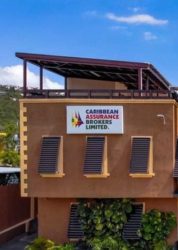There is often quite some difference between perception and reality. Nowhere is this more prevalent than in the views of business persons about economic matters and forecasting of the immediate economic developments and how it will affect their businesses. Nevertheless the views of the business sector is sought formally by governments and government agencies. Others in the private sector are also interested as such views can shape the action they take. Central bankers are particularly interested as the views of the business sector will help them in planning monetary policy moves.
The Eastern Caribbean Central Bank (ECCB) undertakes a Business Outlook Survey (BOS) twice per year. The latest such survey was conducted in each of its member countries during the second quarter of 2013 and indicates that, in general, economic conditions for businesses for the period January to June 2013 deteriorated compared with the corresponding period of 2012. However, businesses in the Eastern Caribbean Currency Union (ECCU) expect an improvement in economic conditions for the second half of 2013, compared with the corresponding period in 2012.
The businesses surveyed also indicated that the terms and conditions for lending in the ECCU region were not as tight during January to June 2013 compared with the comparative period of 2012.
 Looking forward. businesses indicated that the terms and conditions for lending set by the banks will tighten in the second half albeit to a lesser extent than January to June 2013. The results indicate that general business conditions in the ECCU for the period January to June 2013 deteriorated more than had been expected. Businesses are optimistic about an improvement in business conditions during the last six months of 2013. Credit conditions were considered to have tightened but to a lesser extent during the first six months of 2012.
Looking forward. businesses indicated that the terms and conditions for lending set by the banks will tighten in the second half albeit to a lesser extent than January to June 2013. The results indicate that general business conditions in the ECCU for the period January to June 2013 deteriorated more than had been expected. Businesses are optimistic about an improvement in business conditions during the last six months of 2013. Credit conditions were considered to have tightened but to a lesser extent during the first six months of 2012.
Further easing is expected over the period July to December 2013 albeit to a lesser extent than the period January to June 2013.
During the July to December 2013 period, businesses expect their sales performance and profits to improve relative to the second half of 2012. With respect to overall exports, Antigua and Barbuda, Dominica, Grenada, Montserrat, and St Vincent and the Grenadines are optimistic about their exporting prospect during the outlook period while businesses in Anguilla, St Kitts and Nevis and Saint Lucia expect conditions to remain the same. Respondents throughout the ECCU indicate that they expect the cost of doing business to continue on an upward trajectory.
With respect to construction activity, sentiments in Dominica, Grenada Montserrat, St Kitts and Nevis and St Vincent and the Grenadines are optimistic about the outlook period while businesses in Antigua and Barbuda and Saint Lucia expect activity to remain unchanged for the projection period. Businesses in Anguilla expect construction activity to continue to decline.
First half outlook | At the ECCU level, 37.4 per cent of the businesses surveyed indicated that they anticipate that general economic conditions would improve in the first half of 2013, while 23.6 per cent expect economic conditions to deteriorate. Of the total, 39.0 per cent expect conditions to remain the same. This resulted in an overall NPI of 13.74 for the region, reflecting the overall positive business sentiment for the first half of 2013. Respondents also expressed optimism when they were asked about the economic climate within their sector survey respondents in five of the ECCU member countries are optimistic about their prospects for the first half of 2013, with positive NPIs being recorded for Grenada (60.0), Montserrat (48.0), Antigua and Barbuda (47.62), St Kitts and Nevis (20.0), and St Vincent and the Grenadines (12.50); while businesses in Saint Lucia (-66.67), Dominica (-36.0), and Anguilla (-18.75), were generally pessimistic about their prospects.
ECCU member countries | Antigua and Barbuda, Dominica, Grenada, St. Kitts and Nevis, St. Lucia, St. Vincent and the Grenadines, Anguilla and Montserrat
Related posts | Mixed views from Eastern Carib States
Image courtesy of jscreationzs/FreeDigitalPhotos.net





